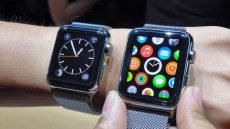Not only genes, even jobs may run in some families, and people within a family are proportionally more likely to eventually also choose the same occupation and this is especially true of twins, a Facebook study has revealed.
However, in absolute terms, the vast majority of kids strike their own path and choose a profession different than that of their parents or their siblings, the research added.
Facebook data scientists Ismail Onur Filiz and Lada Adamic analysed two related sets of data: one a sample of siblings' choices of profession, and the other of parent-child choices.
The sample included 5.6 million parent-child pairs in English-speaking locales who specified a sibling or parent-child relationship on Facebook, along with filling in their occupations.
The study first looked at father-son occupations and mother-daughter occupations.
“The interactive visualisation shows that the probability of a child's occupation falling into any given category does vary by occupation,” the team noted.
They first calculated the probability of a child having an occupation, given their father's occupation like a lawyer-father having a doctor-son (5 percent).
“We then calculated how elevated this probability is relative to the overall proportion of doctors among sons. In this case a son of someone in the legal profession is 4.6 times as likely to practice medicine than sons in general,” Filiz and Adamic noted.
Fathers in the military are more likely than average to have a son in protective service.
Even though relatively speaking, a child may be much more likely to follow in his or her parents' footsteps, the absolute percentage may still be quite low.
A son who has a father in the military is five times more likely to enter the military, but just one in four sons of a military professional does so.
For fathers in the dataset who work in farming, fishing and forestry, only 3 percent of their sons stay in the profession but this probability is 7.6 times the overall rate.
Nearly 20 percent of daughters of mothers who work in office and administrative support choose the same career. On the other hand, 8.5 percent of daughters of mothers in nursing also choose a career in nursing.
“We also see substantial cross-gender occupation “inheritance.” Scientist fathers have scientist daughters at 3.9 the overall rate, while mothers working in law have sons choosing a legal profession at 6.6 times the overall rate,” the team found.
A negative relationship, where a child is less likely to enter a profession due to their family background, is typically very small. For example for lawyer-fathers, the probability of their sons entering construction or maintenance or repair is about 85 percent of the overall likelihood.
Siblings not only share the same parent but sometimes, as in the case of identical twins, they share the same genes.
For the analysis of sibling occupations, the team considered a sample of 2.37 million same-gender siblings in the US who had filled in their occupations in their profiles.
“Nearly 15 percent of siblings share an occupation, which is higher than the 8.6 percent rate for any two same-gender, same-age individuals in the population. Twins' tendency to choose the same occupation, at 24.7 percent, is even more striking,” the team said.
Overall, the study found that people are more likely to “eventually” choose the same occupation but overall the “vast majority” of children choose their own career that’s different from their parents.




